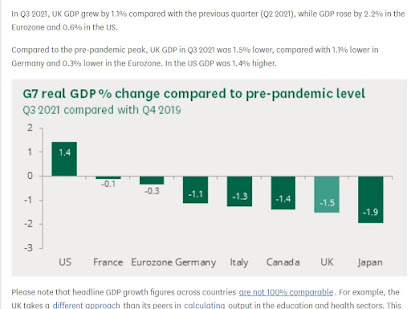How to end the Brexit chaos, a personal view
The PM, unelected by voters or parliament, is threatening press ahead with no deal exit from the EU in defiance of MPs’ wishes. It's often assumed the PM alone has the power to decide whether to press ahead, request an extension or revoke the Article 50 notice. That's not true.
The constitutional position, reinforced by the Miller & Wilson cases, is that parliament has the sovereign power to decide and no act is legal without its approval. Parliament voted for Art50 in Mar 2017 and nothing can stop that now, so the argument goes. Not true.
No parliament can bind its successors & it's perfectly possible for the current parliament to pass an Act to repeal earlier statutes & revoke the Article50 notice.
But surely the PM alone has the power to issue a revocation notice? Not true. Parliament can decide who may issue notice on its behalf, when & how it's done.
If parliament decided the person who sweeps the floor is authorised to issue notice to the EU then, provided correct procedures are followed, that person could issue a valid notice, in accordance with the constitution.
But won't the EU require a decision from the PM? No. EU law, as defined in Article 50 of the Lisbon Treaty, states that a member state may issue notice to withdraw "in accordance with its own constitutional requirements". EU law doesn’t specify who may issue notice.
Constitutional procedures are reserved for each sovereign member state to decide for itself, as befits its laws & traditions.
The court of appeal ruled, in the case brought by Sue Wilson, that the will of parliament is the supreme authority. This followed an earlier ruling in the Miller case which required HMG to seek parliamentary approval for withdrawal.
The European Court of Justice ruled, in 2018, that a member state may unilaterally withdraw Art 50 notice “following a democratic process in accordance with national constitutional requirements”.
The EU is agnostic on the question of who or how the UK issues formal notice of its intent, so long as it’s constitutionally sound. The final arbiter of all constitutional questions in Britain is parliament.
The sovereignty of parliament belies the assertion that MPs are powerless against a PM determined to take Britain out of the EU, regardless of any intervention in Westminster.
A government without a working majority is in no position to impose its will on parliament. MPs can, in fact, take control of the flow of events, regardless of the government’s position.
Parliament can enact a bill to revoke the Article 50 notice, and to instruct the Speaker, or someone else, (the Sweeper?) to notify the EU of its decision.
If enough MPs vote to take control of parliament and enact a repeal of Article 50 and empower the Speaker to convey their instructions to the EU then Brexit could be terminated in a few days. The PM has no power to stop this unless he can muster enough votes, which is highly unlikely.
A PM who lacks a working majority can express opinions but has no constitutional power to frustrate the will of a majority in parliament. If parliament decides to revoke the Article 50 notice in accordance with constitutional procedure then that’s the end of the matter.
As to what follows a notice to Revoke, that’s for parliament and voters to decide.
The constitutional position, reinforced by the Miller & Wilson cases, is that parliament has the sovereign power to decide and no act is legal without its approval. Parliament voted for Art50 in Mar 2017 and nothing can stop that now, so the argument goes. Not true.
No parliament can bind its successors & it's perfectly possible for the current parliament to pass an Act to repeal earlier statutes & revoke the Article50 notice.
But surely the PM alone has the power to issue a revocation notice? Not true. Parliament can decide who may issue notice on its behalf, when & how it's done.
If parliament decided the person who sweeps the floor is authorised to issue notice to the EU then, provided correct procedures are followed, that person could issue a valid notice, in accordance with the constitution.
But won't the EU require a decision from the PM? No. EU law, as defined in Article 50 of the Lisbon Treaty, states that a member state may issue notice to withdraw "in accordance with its own constitutional requirements". EU law doesn’t specify who may issue notice.
Constitutional procedures are reserved for each sovereign member state to decide for itself, as befits its laws & traditions.
The court of appeal ruled, in the case brought by Sue Wilson, that the will of parliament is the supreme authority. This followed an earlier ruling in the Miller case which required HMG to seek parliamentary approval for withdrawal.
The European Court of Justice ruled, in 2018, that a member state may unilaterally withdraw Art 50 notice “following a democratic process in accordance with national constitutional requirements”.
The EU is agnostic on the question of who or how the UK issues formal notice of its intent, so long as it’s constitutionally sound. The final arbiter of all constitutional questions in Britain is parliament.
The sovereignty of parliament belies the assertion that MPs are powerless against a PM determined to take Britain out of the EU, regardless of any intervention in Westminster.
A government without a working majority is in no position to impose its will on parliament. MPs can, in fact, take control of the flow of events, regardless of the government’s position.
Parliament can enact a bill to revoke the Article 50 notice, and to instruct the Speaker, or someone else, (the Sweeper?) to notify the EU of its decision.
If enough MPs vote to take control of parliament and enact a repeal of Article 50 and empower the Speaker to convey their instructions to the EU then Brexit could be terminated in a few days. The PM has no power to stop this unless he can muster enough votes, which is highly unlikely.
A PM who lacks a working majority can express opinions but has no constitutional power to frustrate the will of a majority in parliament. If parliament decides to revoke the Article 50 notice in accordance with constitutional procedure then that’s the end of the matter.
As to what follows a notice to Revoke, that’s for parliament and voters to decide.



Comments
Post a Comment